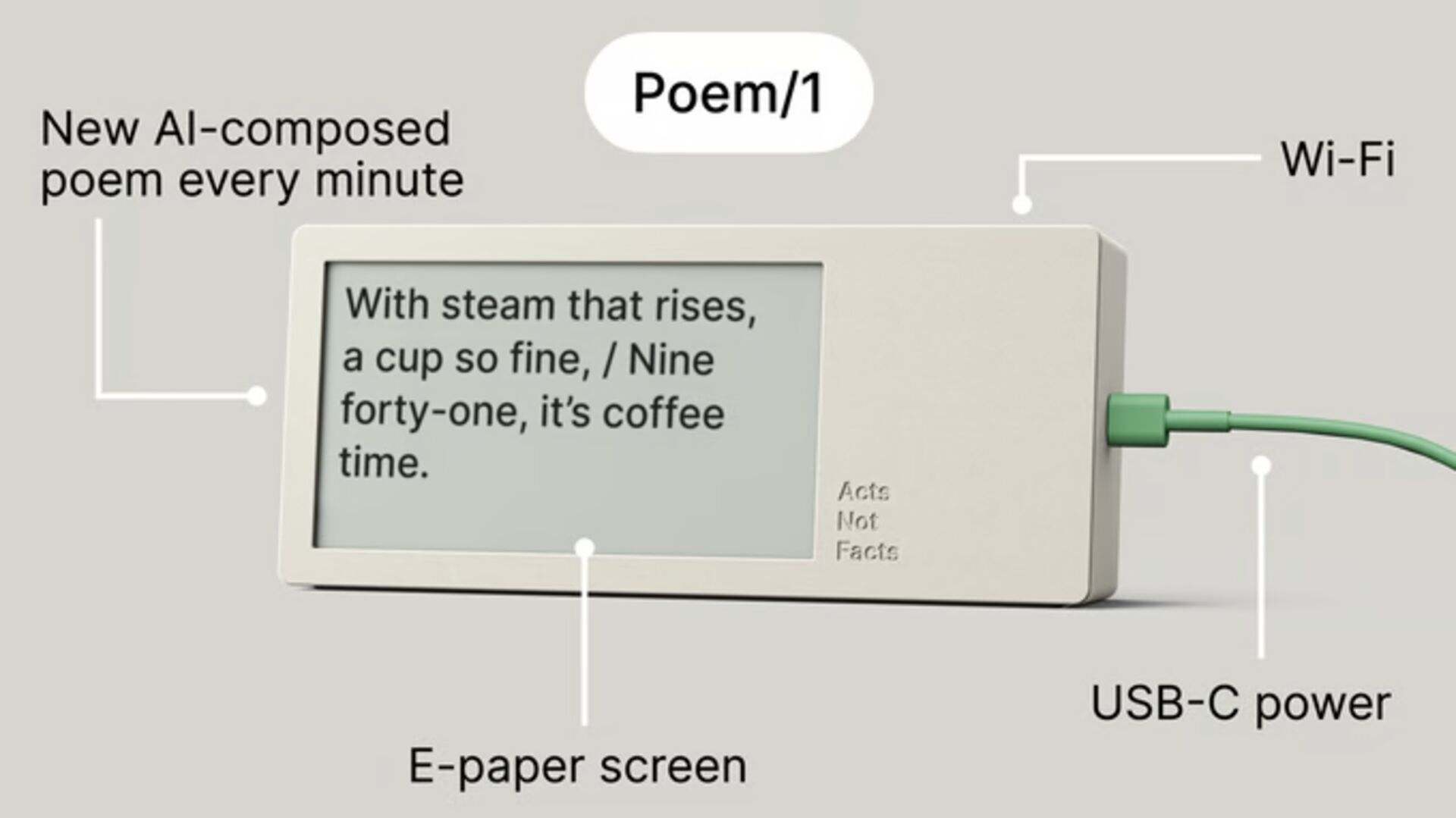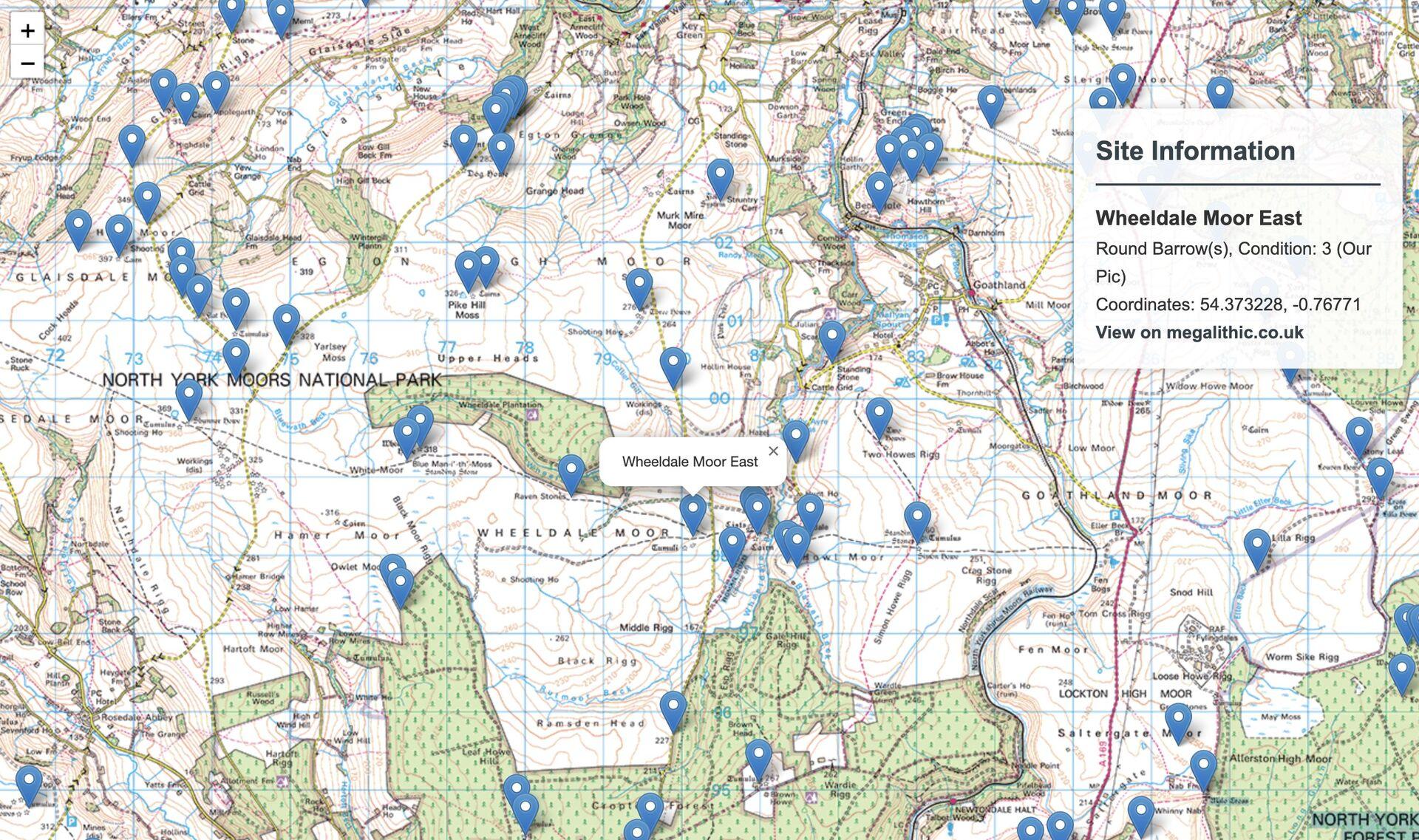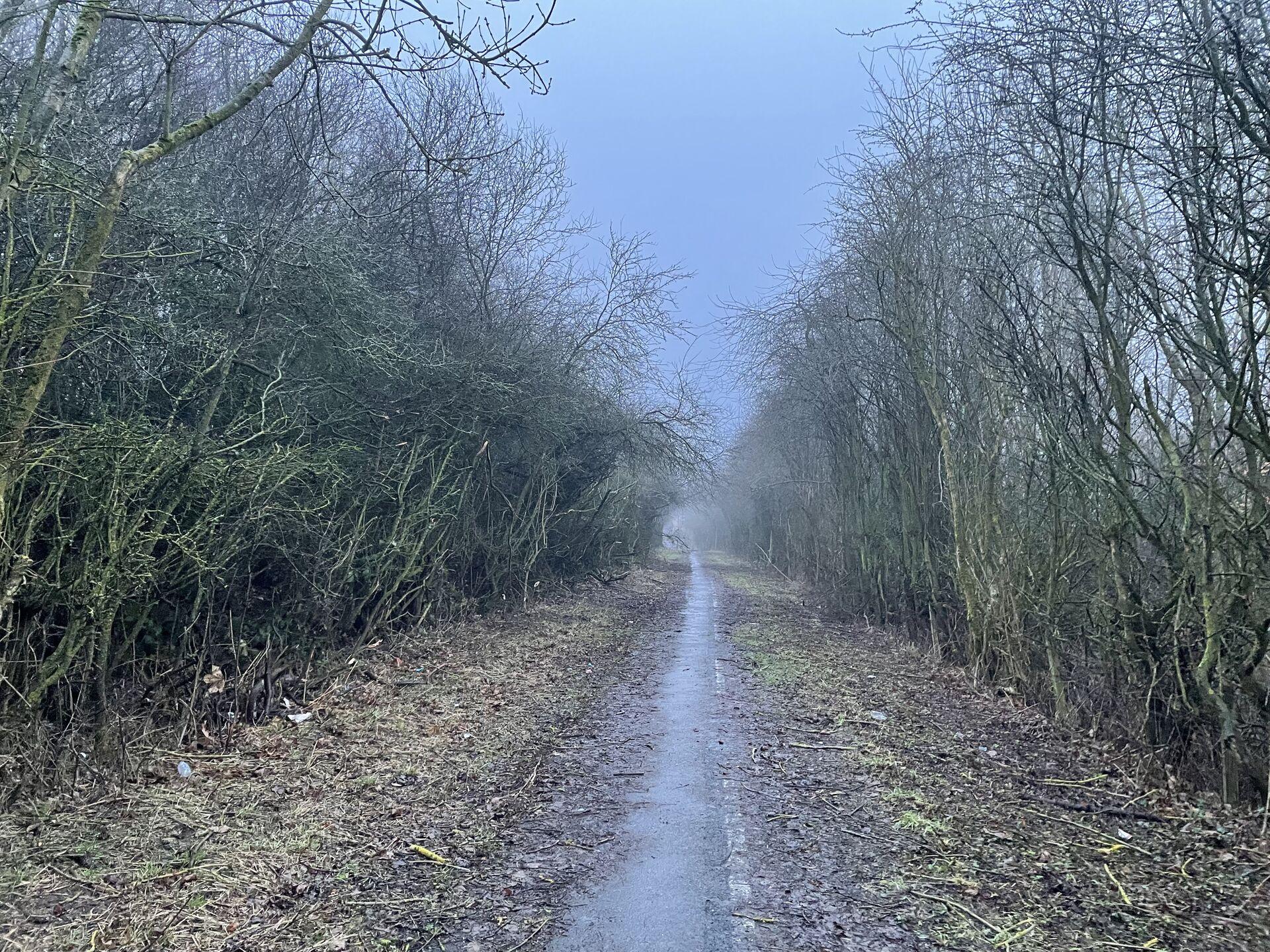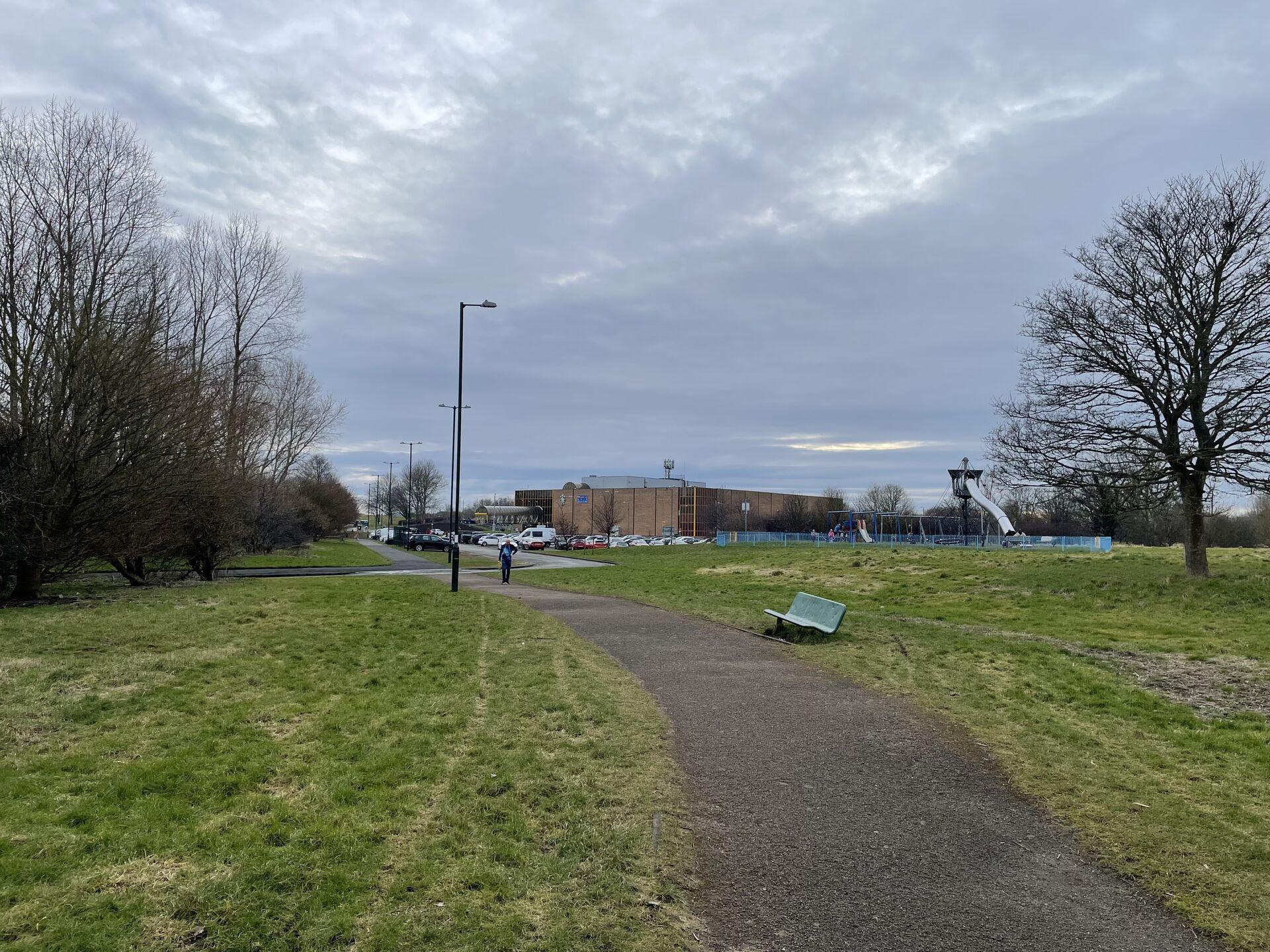Poem/1
I like Matt Webb. I like the way he thinks. I like his framing of AI consciousness not as an empirical measure but as a practical distinction. He makes abstract thinking accessible, which is very helpful for a smoothbrain like me.
But I'm not a fan of his AI clock.
Every hour it pulls and displays a new ChatGPT-3.5-generated poem, featuring somewhere the current time, from a central server. The poetry format makes it a poor clock: when I want to know the time, I don't want to have to parse a slant-rhyming couplet first.
That's ok, though. Timepieces do tend to blur the line between information and art. But ChatGPT-3.5 generates undeniably bad art.
Colors mingle, brush takes flight
Three fifty-seven, a palette of light.
This doesn't mean anything; I'd almost rather that it read "3:57 - painting" instead. Matt describes these poems as "profound" and "weirdly motivational". I'd describe them as "a YouTube short titled The Most Inspiring PEople in The world 2025". They have exactly the same semantically-bankrupt energy as Shrimp Jesus.
If I'm honest, I think that Matt probably knows that the poems aren't very good. But when he first showed it off on Twitter and LinkedIn in 2023 it got a bunch of buzz because it was a quirky, digestible idea in a space that people didn't really understand, and that makes easy fodder to keep Ars Technica or Fast Company chugging along. But coverage isn't validation, and between March '23 and now we've all realised that AI's much worse at generating Good Art than it is at generating Subtle Bugs in Legacy Codebases.
I'd feel worse about being this negative if this was a clear labour of love. If it uplifted people or promoted connection or kindness between folks. But I just can't find the humanity in this. Why couldn't this have been a funny, if artistically moribund, widget on interconnected.org, instead of something you have to pay £129 for?



